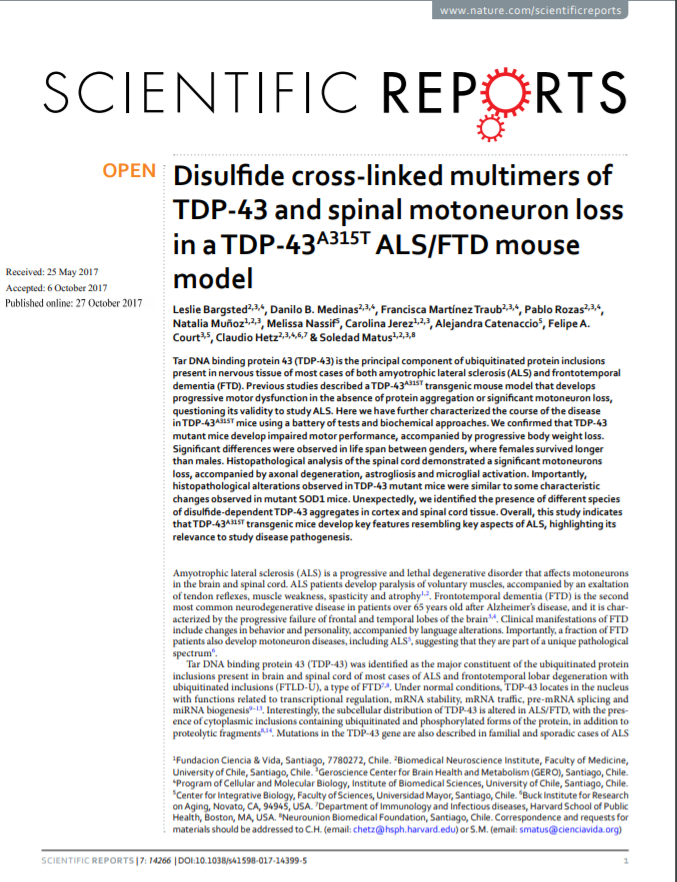Disulfide cross-linked multimers of TDP-43 and spinal motoneuron loss in a TDP-43A315T ALS/FTD mouse model

Fecha
2017Autor
Bargsted L., Medinas D.B., Martínez Traub F., Rozas P., Muñoz N., Jerez C., Court F.A., Hetz C., Matus S.
Nassif, Melissa [Centro de Biología Integrativa, Facultad de Ciencias, Universidad Mayor, Chile]
Catenaccio, Alejandra [Centro de Biología Integrativa, Facultad de Ciencias, Universidad Mayor, Chile]
Ubicación geográfica
Notas
HERRAMIENTAS
Acceda a títulos restringidos
¿Cómo descargar?Resumen
Tar DNA binding protein 43 (TDP-43) is the principal component of ubiquitinated protein inclusions present in nervous tissue of most cases of both amyotrophic lateral sclerosis (ALS) and frontotemporal dementia (FTD). Previous studies described a TDP-43A315T transgenic mouse model that develops progressive motor dysfunction in the absence of protein aggregation or significant motoneuron loss, questioning its validity to study ALS. Here we have further characterized the course of the disease in TDP-43A315T mice using a battery of tests and biochemical approaches. We confirmed that TDP-43 mutant mice develop impaired motor performance, accompanied by progressive body weight loss. Significant differences were observed in life span between genders, where females survived longer than males. Histopathological analysis of the spinal cord demonstrated a significant motoneurons loss, accompanied by axonal degeneration, astrogliosis and microglial activation. Importantly, histopathological alterations observed in TDP-43 mutant mice were similar to some characteristic changes observed in mutant SOD1 mice. Unexpectedly, we identified the presence of different species of disulfide-dependent TDP-43 aggregates in cortex and spinal cord tissue. Overall, this study indicates that TDP-43A315T transgenic mice develop key features resembling key aspects of ALS, highlighting its relevance to study disease pathogenesis.
URI
https://www.nature.com/articles/s41598-017-14399-5.pdfhttps://doi.org/10.1038/s41598-017-14399-5
http://repositorio.umayor.cl/xmlui/handle/sibum/6947
Coleccion/es a la/s que pertenece:
Si usted es autor(a) de este documento y NO desea que su publicación tenga acceso público en este repositorio, por favor complete el formulario aquí.